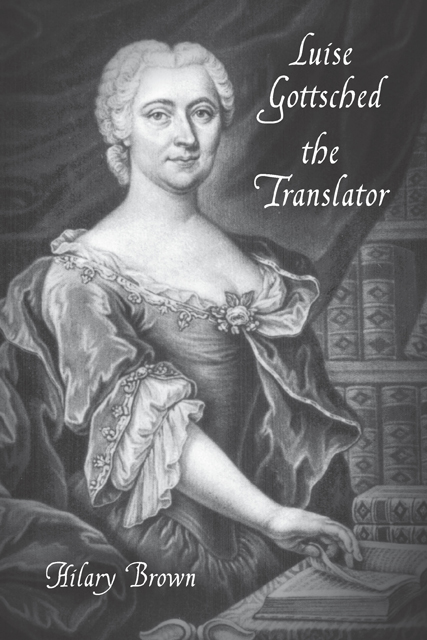Book contents
5 - Poetry and Literary Prose
Published online by Cambridge University Press: 14 February 2023
Summary
As A Literary Translator Gottsched did not focus her attention exclusively on drama. She appears to have had a more general interest in literature. She read widely, from the Iliad and poetry by Sappho to Ariosto’s Orlando Furioso and Thomson’s Seasons. She reviewed recent works of literature and literary theory for her husband’s journals Neuer Büchersaal der schönen Wissenschaften und freyen Künste and Das Neueste aus der anmuthigen Gelehrsamkeit. Over the course of her career she in fact turned a substantial body of foreign-language poetry and fiction into German.
On the whole Gottsched does not seem to have shown the same ambition in these projects as in other fields. Her poetry translations are largely scattered in various publications, such as the passages of Dryden and Milton that appeared in the pages of Der Zuschauer and the examples from des Barreaux and Deshoulières cited in articles in the Historisches und Critisches Wörterbuch. Her novel translations were undertaken halfheartedly; like many of her contemporaries she seems not to have thought very highly of the genre. Novels were not highly regarded in Europe in the first half of the eighteenth century: the Church authorities had long preached that imaginative literature was distracting, corrupting, and dangerous, and in 1737–38 the French monarchy had even tried to ban novels altogether. Gottsched made a translation of La Fayette’s Princesse de Clèves in Danzig but refused to publish it. Also in Danzig she began working on Scudéry’s Bains de Thermopyle at Johann Christoph’s suggestion but abandoned the project because it smacked too much of novel. She later forced herself to turn Marivaux’s Paysan parvenu into German but insisted on remaining anonymous, and the text has disappeared without trace.
This chapter concentrates on two areas of literary translation to which Gottsched did nevertheless make a surprising and significant contribution: the ancient Roman and Greek authors Horace and Lucian and the great eighteenth-century English poet Alexander Pope.
Horace and Lucian
That Gottsched translated classical literature has almost escaped the notice of literary historians. Indeed, we may well be surprised to find her engaging with classical authors, given what we know of female translators in the baroque period. As noted in chapter 1, it was rare for women in the seventeenth and early eighteenth centuries to have any exposure at all to the classics.
- Type
- Chapter
- Information
- Luise Gottsched the Translator , pp. 136 - 158Publisher: Boydell & BrewerPrint publication year: 2012



